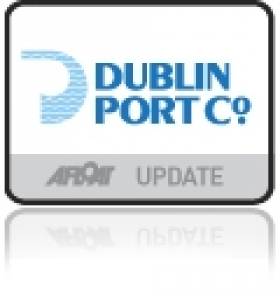Displaying items by tag: Tug Ben Eadar
Former Dublin Port Tug on Delivery Voyage to Portugal
#SOLD DUBLIN TUG SETS SAIL – With a career spanning nearly four decades, the former Dublin Port Company tug Ben Eadar (1973/198grt) departed over the weekend on her delivery voyage to serve new owners in Portuguese waters, writes Jehan Ashmore.
Prior to her departure, Ben Eadar was moored alongside the grab-hopper dredger Hebble Sand (1963/757grt) in Alexandra Basin, which too awaits her delivery voyage to new owners.
It was envisaged that the veteran tug would be towed on the delivery voyage to Portugal however she left Dublin Port for the final time on Saturday under her own power. Since her departure the 17 tonnes bollard pull (tbp) veteran vessel called en route to Milford Haven on Monday before making a longer leg across the Bay of Biscay.
She still retains her original name since her launch at the Yorkshire shipyard of Richard Dunston Ltd, Hessle, however she was re-flagged in Vanuatu, where her change of registry is Port Vila, the capital of the south Pacific island nation.
Ben Eadar became the last of three tugs sold this year to depart Dublin Port, having been brought by ARPA & Co. of Setubal in Portugal. The 17-tonnes bollard pull (tbp) tug follows her younger 35tbp Voith- Schneider fleetmates, Cluain Tarbh (1991/268grt) and Deilginis (1997/335grt). The former was sold to Scottish interests and the latter remains in Irish waters based out of Killybegs.
The trio represented the last of the older generation of a tug fleet built for the Dublin Ports & Docks Board (DP&DB) which is now the Dublin Port Company. The tugs were all given names of Dublin Bay coastal suburbs spelt in Irish and were replaced by a pair of more powerful 50tbp newbuilds introduced from 2009.






























































